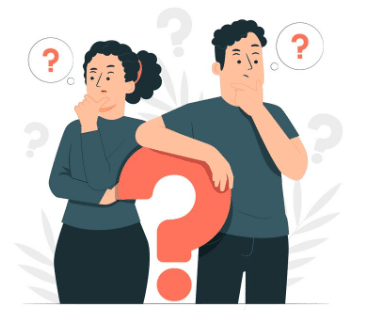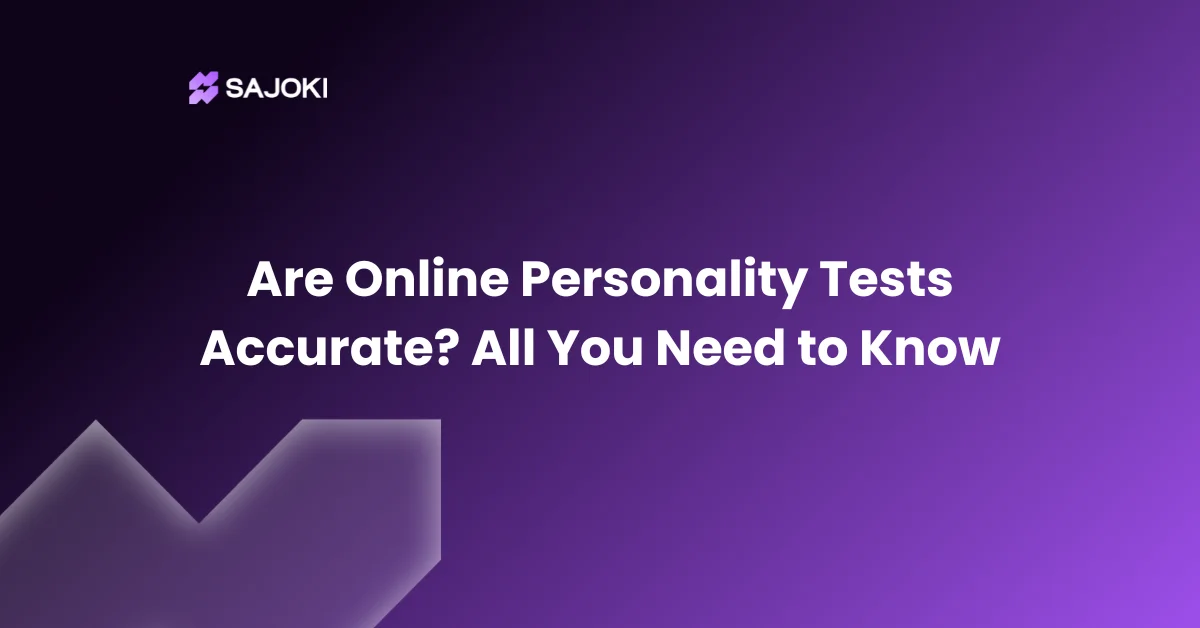Personality tests have been fascinating psychologists and the general public for centuries. From HR managers to secondary schoolers, the tests are used to build their own understanding or gauge compatibility. Online personality tests have made this observable phenomenon accessible at one’s fingertips.
So, are online personality tests accurate? In short, some are very reliable, others are not scientific. How reliable they are comes down to the design of the test, its intent, and whether it’s been tested in psychology research. Fun quizzes give entertaining results, but not all of them are research-informed.
To learn which tests you can believe and which should be left on the entertainment page, read on. In this article, we explore what constitutes an accurate or inaccurate online personality test.
What Makes a Personality Test Accurate?

A personality test is consistent when it always assesses a person’s enduring traits and psychological inclinations.
Its reliability depends upon the scientific hypothesis that it uses, the objectivity of its questions, and the openness of the way its outcomes are calculated and understood.
5 Signs of a Reliable Online Personality Test
A reliable online personality test should always have the following qualities:
1. Validated by Psychological Literature
Genuine tests quote psychological theory or scholarly studies. Big Five tests, for instance, regularly quote experiments on trait theory.
These tests go beyond surface skimming. They dig deeper into emotional and behavioral traits.
2. Stable Results Over Time
If you administer the test twice and your results are negative, your internal results should be the same. That is evidence of internal reliability.
Tests with extreme variation are not valid. Stability is evidence of good design.
3. Clear Scoring System
Good tests establish how answers lead to the final type or score. Clarity provides user confidence.
If the response is too abstract or irrelevant, it’s most likely to be unstructured. Good tests rationalize their answers.
4. Non-Leading and Objective Questions
Good questions don’t steer you towards an answer. They are not leading and allow true responses.
Leading questions will bias findings and decrease validity. This happens in tests poorly crafted.
5. Validating Source or Platform
Tests constructed by trustworthy organizations or psychologists are bound to be more accurate.
Universities, qualified practitioners, or software such as SAJOKI usually possess good quality and reliable processes.
So, Are Online Personality Tests Accurate?
If a test includes all the qualities mentioned, such as scientific backing, consistent results, clear scoring, unbiased questions, and a credible source then it is likely to be accurate and reliable.
These tests are built on proven psychological theories and show stable results over time. It means they measure genuine traits rather than mood or guesswork.
A transparent scoring system helps users understand how their answers shape the outcome. It also increases trust in the results.
Objective questions encourage honest responses, while reputable platforms ensure ethical design and proper validation.
In short, when a personality test checks all these boxes, it becomes a dependable tool for gaining real insights into one’s personality.
3 Types of Online Personality Tests
Online personality tests differ in purpose, design, and validity. Some are grounded in psychological science, others in amusement only. To understand which are worth doing, it’s useful to know what each type is attempting to do and in what circumstances they can be relied upon.
1. Scientifically-Based Tests
They are built on known psychological frameworks like the Big Five, DISC, or (less commonly) MBTI. They are replicable, structured, and typically validated through peer-reviewed research and statistical testing.
When They’re Accurate:
- In the workplace, they can legitimately assess behavioral tendencies and job-role suitability.
- In schools, they determine learning styles and group work collaboration preferences.
- In coaching or counseling, they guide personal development, emotional management, and communications skills.
Tests in this category are best suited for significant decision-making, such as hiring, leadership development, or therapy consultation.
2. Entertainment-Based Quizzes
These are the personality tests most commonly seen on social media or lifestyle sites. They’re informal, fun, and easy to take, with popular results such as “Which Disney Villain Are You?” or “What Bread Type Fits Your Personality?”
When They’re Accurate:
- Solely in a reflective or exploratory framework. They can be fun and occasionally even strike on universal truths, yet they are not research-based.
- Can be useful as discussion openers or possibly as a way to generate interest in real personality testing.
These tests, nevertheless, should never be used to make career choices, therapy decisions, or relationship commitments.
3. Hybrid Platforms
Hybrid personality platforms mix entertainment design with systematic analysis. Hybrid platforms attempt to bridge the gap between ease of use and accuracy. Hybrid platforms tend to use simplified versions of validated models and report results in engaging ways.
When They’re Accurate:
- For general self-awareness or casual career exploration, these platforms can offer useful insights.
- When driven by real frameworks (like OCEAN or DISC) and developed by psychologists or psychometricians.
- Suitable for students, early practitioners, or personal growth hobbyists who need accessible tools without overclinical intensity.
However, validity is dependent upon how transparent the platform is about its methodology and the degree to which its discoveries map established frameworks.
Where Do Online Personality Tests Fail?
Although widely used, the majority of tests online are by no means perfect. Being aware of their weaknesses can help generate proper expectations.
1. Reducing Personality to a Label
Humans are complex and online tests may reduce you to a mere label. That is more likely to mislead than inform.
It may disregard situational or cultural influences. Typing rigidly sells stereotypes short.
2. Lacking Clinical Assessment
The majority of online tests are self-administered. They lack expert interpretation.
This limits their use to mental health or clinical diagnosis. They are tools, not therapy replacements.
3. Variable Test Conditions
Testing under conditions of distraction affects responses. Mood or stress may alter your reply.
Unlike controlled environments, tests online cannot control external variables. This affects precision.
4. Lack of Follow-Up or Context
Results tend to be presented without individual counseling. Users will misinterpret them.
Professional feedback is absent. Misuse may lead to poor decisions based on flawed insights.
5. Limited Cultural Sensitivity
Tests are created mostly for Western audiences. Language, norms, and values do not translate well globally.
This reduces their effectiveness in multicultural settings. Accuracy is lost with cross-cultural application.
Practical Applications of Online Personality Tests
Though they have limitations, online tests have practical applications. Carefully selected, they can contribute to development and understanding.
1. Self-Awareness
Tests provide a reflection of your emotional and mental tendencies. This can prompt self-awareness.
Knowledge of your strengths and triggers can promote personal growth. It’s a first step towards improvement.
2. Career Planning
Personality tests are commonly used to investigate job matching. Others match traits with occupational requirements.
This facilitates career planning and resume development. It provides guidance for future careers.
3. Team Building
Tests help employers identify team dynamics. Assigning complementary types improves performance.
This produces more productive, more harmonious teams. It enhances productivity and communication.
4. Learning Styles
Students learn best about how they learn. Visual, verbal, and kinesthetic students all benefit from this.
Tests make study habits more individualized. This improves outcomes.
5. Relationship Insight
Understanding personality differences communicates better. It takes into consideration patterns of conflict.
Couples use tests to determine compatibility and shared values. It enriches understanding.
Platforms That Provide Reliable Personality Testing
There are a few that are highly accurate and usable. Popular and well known.
- Truity: Offers free and paid assessment. Includes comprehensive career and relationship details.
- 16Personalities: Renowned for ease of use and straightforward reports. Based on MBTI-inspired frameworks.
- SAJOKI: Provides AI-enabled analysis based on personality frameworks. Utilized in career and recruitment scenarios.
- Psychologia.co: Utilizes coaching with personality insights. Ideal for personal growth.
- HumanMetrics: Offers classic MBTI testing used by HR departments and academic researchers.
These websites strike a balance between ease of use and psychological intensity. They are more likely to provide meaningful and accurate results.
Frequently Asked Questions
Can online tests substitute for professional evaluations?
No. They can provide guidance but not clinical diagnosis or counseling.
Why do various tests provide me with different results?
Tests differ in quality, design, and intensity. Select those that are scientifically validated.
Are online personality tests reliable enough for employment?
Only when applied in combination with other instruments. They need to supplement, and not replace, interviews or advice.
How do I know a test is legitimate?
Get sources from scholars, be stable, and score transparently. Avoid extremely generalised tests.
Can I get different results based on when I take it?
Yes. Mood, pressure, or misreading questions can compromise answers. Stability is important.
Conclusion
So, are online personality tests accurate? Some, but only if grounded in psychological principles. Reliability hinges on design and intention.
Online personality tests, used thoughtfully, can give useful counsel. Sites such as SAJOKI bring systematic insight into career planning and personal growth. But use them as tools, not absolute truths. Choose wisely, interpret cautiously, and create intentionally.










